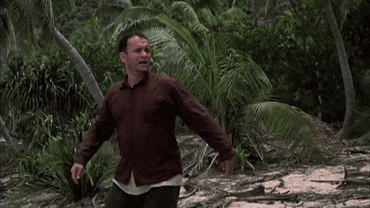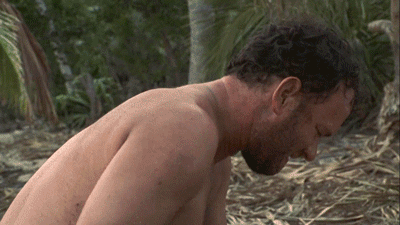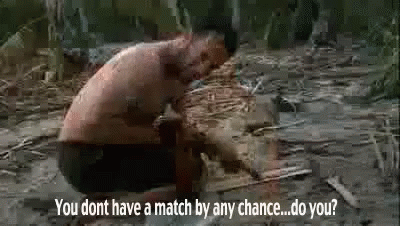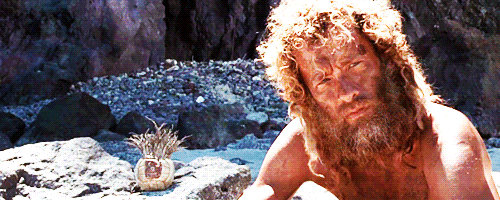No Signal
Coronavirus news has got us all down, and more importantly, socially distanced from those around us. How important is Wi-Fi in the fight against the virus and our potential loneliness?

I don’t want to take undue attention away from your coronavirus reading, as there is important news breaking daily and you should be up on the specifics.
But let’s face it: It’s hard to read nothing but new stories about the disease or its effects or far-reaching measures being taken to contain its spread. While we’re all supposed to be practicing social distancing and self-quarantine measures, it would be nice to read something not related to the very thing that’s keeping us indoors.
On Sunday, we decided to forego any brunch options, to skip outings of any kind, and to distance ourselves, socially. We hunkered down, said a prayer to the Patron Saint of Self-Quarantine, Tom Hanks, and prepared to watch some truly trashy reality television, as is our god-given right as Americans. But then, tragedy struck; our Internet was not working, and according to the service update, it wouldn’t work the entire day.
“No worries,” we thought. “We can handle this.” We strutted into the day, like:

But then the tick-tick-ticking of the day started to get to us, solely because we couldn’t do anything about it. It was categorically different from a day where we chose to sit without the television on, reading or working in our respective corners. The silence was deafening.

We checked the service update for any changes; they were the only ones who could save us now.

They did not save us; they did not come for us. It was a long day.

But then I reminded myself that things could always be worse. Or better, depending on your bent. Consider this:
Nearly 15 million Americans live in sparsely populated communities where there is no broadband internet service at all, a stark digital divide across America between those with access to uber-fast connections and those with none.
None is likely as extreme as Green Bank, West Virginia, according to The New York Times. Because of the nearby Green Bank Observatory, “home to the world’s largest fully steerable radio telescope,” there is a 13,000-square-mile National Radio Quiet Zone.
Read about it here:
No Cell Signal, No Wi-Fi, No Problem. Growing Up Inside America’s ‘Quiet Zone’ | The New York Times
It’s hard to overstate how important Wi-Fi is to the daily lives of nearly everyone. With countless professionals being required or advised to work from home, we could hear the groaning of the digital infrastructure under the weight of increased usage. What’s more is the furious pace of developments during the spread of the coronavirus, and Americans are better off with access to this information, which has led to calls for broadband providers to relax data caps. It seems like major players like AT&T and Comcast are taking this reality to heart, and that seems like a small bright spot in the chaos surrounding the pandemic.
But the article paints a quaint picture of life that feels foreign in this day and age. It’s got a lot of appeal (and not just to the people who think they’re allergic to radio waves), and despite the sense that now, in the time of a global pandemic, is the worst time to be without Wi-Fi connectivity, consider that West Virginia was the last state without a case of the coronavirus.
While government-enforced radio-dead zones aren’t the norm, the statistic that 15 million live without broadband access is evidence that dead zones and Wi-Fi deserts are more common than we realize. As I read about the details of life in Green Bank, I was reminded of a Reply All episode from four years ago. It was a digital mystery, one that felt greatly removed from the isolation and seclusion of a tiny West Virginia town of 143 people.
Strangers keep coming to Mike and Christina’s house looking for their stolen cell phones. Nobody knows why. We travel to Atlanta to find out what’s going on, in our thorniest Super Tech Support yet.
Listen here:
#53 In The Desert | Reply All
Spotify | Apple Podcasts | Pocket Casts
The story was based on reporting that originally ran on Splinter’s (R.I.P) website. Read it here:
Why do people keep coming to this couple’s home looking for lost phones? | Splinter
Extra Credit
In case you’re one of the few people in the world who hasn’t listened to Reply All’s most-recent completely compelling story about the resurrection of a ‘90s earworm is endlessly uplifting and happy-making. Do yourself a favor: Listen and marvel at the power of a story that doesn’t need to be told but makes the world a better place when it is. Don’t believe me? Take it from these rave reviews on Twitter:
Listen to it here:
#158 The Case of the Missing Hit | Reply All
Spotify | Apple Podcasts | Pocket Casts
If you liked what you read, please sign up, follow me on Twitter (@CaryLiljohn06) and then forward to friends to help spread the word.